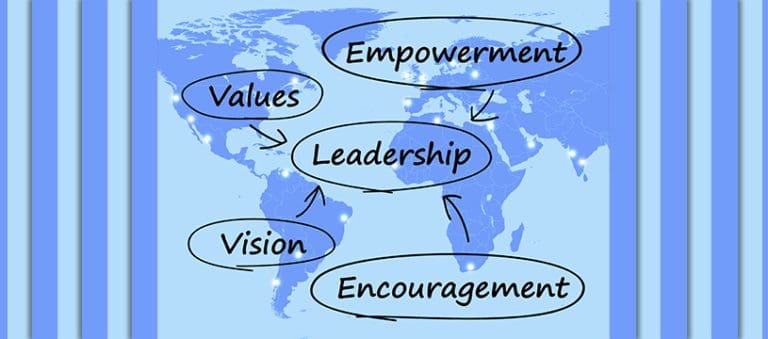Affirmations have long been known to be effective ways to shift thinking and pursue important goals in our personal lives. They have been shown to create clarity and focus our thinking. Affirmations can also help us to align our energy and attention in ways that produce tangible results.
However, we don’t often think about affirmations as contributing to leadership success. Yet, the same factors that can make affirmations useful tools to achieve personal goals can help us focus our professional attention, align our energy, and see opportunities that we otherwise might miss.
Regardless of life context, our thoughts are powerful shapers of how we see reality. What we tell ourselves influences our perceptions. What we think drives where we invest our energy and how we respond to experiences.
Affirmations help us to form intentions and shape goals. Of course, affirmations work when they are repeated, reflected upon, and regularly applied in our actions. The more frequently we say, think about, and act on affirmations, the more powerful their impact can be.
When affirmations become part of our leadership thinking and actions, they can help us to gain new insights, discover new strategies, and form stronger, more influential relationships. Let’s explore five leadership affirmations worth tapping in our daily thinking, actions, and routines:
- Keep the main thing the main thing. This affirmation can help us to remain focused when we face myriad issues and challenges and are at risk of becoming distracted by detail or overwhelmed by demands. Remaining focused on what matters most, whether student learning, health and safety, or instructional effectiveness, can help us to ignore what does not deserve our attention and energy and prioritize what does. This affirmation can prompt us to ask, “What really matters here?”
- The most important step in any journey is the next step. When beginning major projects or undertaking a challenging change process, we can become so focused on potential problems, strategies to employ, or what will be required that we forget that every journey is a series of steps and actions. We may want to immediately be at the end point. Or we may become overwhelmed with what lies ahead. Yet, what we do next will often play a key role in determining whether the ultimate outcome will be reached. The truth is that each step matters and the opportunity to make progress lies in taking the next step. We need to ask ourselves, “What is the next step that will move me forward?”
- Intentions matter more than motivation. At first, this affirmation might seem counterintuitive. Motivation creates energy and excitement for what may lie ahead. Yet, while motivation can be useful in getting started, it can lack focus and wane as the reality of the work and struggle necessary for success becomes evident. Intentions, on the other hand, position us to commit. Intentions can help us to focus our energy and carry us through when our motivation may not be as strong as it was at the beginning. We can “power through” even when our motivation wanes by asking, “What am I committed to and why does it matter?”
- Time is my most important resource. Each day we face requests, distractions, opportunities, and expectations that compete for our time. We may be inclined to respond as much and as often as we can, believing that engaging with people and responding to their needs and interests are important. While to an extent, this perspective makes sense, it overlooks an important fact. We have a limited number of hours and minutes each day. How we choose to use the time we have will determine our success and the extent to which we can serve the needs of those who depend on our leadership. We do well to ask ourselves often, “What is the best use of my time in this moment?”
- Gratefulness makes everyone’s day. Life is often hectic, even chaotic at times. We face multiple demands and must respond to varied situations. It can be easy to fall into a habit of finding fault, lamenting problems, and regretting actions taken, or not. Yet, during even the most difficult times, there are opportunities, experiences, and relationships for which we can be grateful. Reflecting on, appreciating, and sharing what we can be grateful for can immediately change our attitude, help us to reframe a situation, or lift the spirits of those around us. When gratefulness becomes part of each day, it makes each day better. We can summon these feelings by asking ourselves, “What can I be grateful for right now and who needs to hear it?”
Now is a great time to begin tapping the power of these and other leadership affirmations, if you are not already doing so. We change our behaviors by changing our thinking. We ensure our success by the choices we make, actions we take, and habits we practice.



